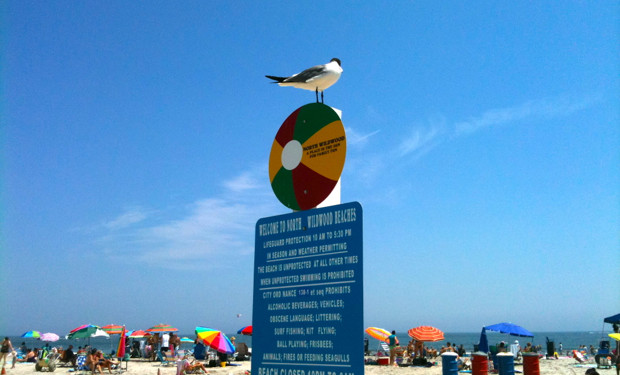New Jersey Legislators Attempt to Halt “Snookering” Caused by Reality TV
Regardless of whether one has fallen victim to the reality television that has taken America by storm since the first episode of “Survivor” aired in early 2000, names such as Lauren Conrad, Ryan Seacrest, and even “Snooki” have become commonly recognized in homes across the nation. While reality television shows can lead to legitimate fame for some, they can also come with a cost—particularly for towns where these shows are recorded.
Many New Jersey citizens recognize their state has traditionally been a desirable location for reality television shows, including MTV’s “Jersey Shore”, “The Real Housewives of New Jersey”, and “Cake Boss”. With these shows come certain advantages for the state and its citizens in the form of increased tourism, increased profits for local businesses and the like. But serving as the host-city to a reality television show has its downfalls. In fact, a poll taken by Quinnipiac University in October 2010 revealed that over 60 percent of registered voters in the state objected to the “Jersey Shore” series. The show was eventually cancelled, and the last episode was aired in December 2012.
In response to some of the extra costs and negative publicity associated with filming reality shows such as “Jersey Shore”, New Jersey Assemblyman Ronald S. Dancer proposed bill A-3273. This bill is known as the “Snookiville Law” in reference to “Jersey Shore” reality star Nicole “Snooki” Polizzi who was arrested in Seaside, New Jersey in 2010 for disorderly conduct. The bill gives towns the specific authority to license and regulate reality television shows. If passed, the law would allow municipalities to act in the interests of taxpayers and public safety during the filming of reality shows by requiring television crews to pay for measures to address traffic congestion and crowd control, and additional security when stars engage in disorderly conduct.
Dancer acknowledges the bill will not correct all problems associated with hosting a television show, such as drunken reality stars stumbling down the street. He does, however, assert that the bill will be beneficial to taxpayers and towns who adopt the regulations. “It’s designed to provide towns with an option. It’s not a mandate, but an option,” Dancer explained. “For a local municipal to license filming as a special event, we can better manage and plan to prevent poor situations, such as crowds, traffic congestion and drunkenness.” Noting that reality television can be an asset to the host community, Dancer clarified that the purpose of his proposed bill is not to discourage producers from seeking New Jersey towns to host shows, but would simply provide a way to fund the extra costs that taxpayers bear now when shows require additional services from the towns during filming. In fact, he added, the licensing agreements would allow production companies to ensure they are in compliance with the conditions of the license and will not be shut down based on disapproval from the surrounding community.
Although several news media outlets seem to suggest that Dancer’s proposal is an entirely new law, the proposal is actually an amendment to an already existing law. N.J. Stat. § 40:52-1 gives governing bodies of municipalities “the authority to make, amend, repeal and enforce ordinances to license and regulate” a broad range of individuals entities including, but not limited to: vehicles and their operators, hotels and boarding houses, restaurants and other food service facilities, and vendors such as pawn brokers, street venders, and employment agencies. The amendment to the statute is one paragraph extending regulator authority to “reality shows”, which reads:
The production and filming of reality shows in public locations and places of public accommodation within the municipality. For the purposes of this subsection, “reality shows” means a genre of television or digital media programming that presents purportedly unscripted melodramatic, comical, or entertaining situations that are often manipulated and contrived to create an illusion of reality through direction and post production editing techniques, or that documents actual events, usually featuring non-professional actors, sometimes in a contest or other situation where a prize may be awarded, and often utilizing sensationalism to attract a viewing audience.
Although a large majority of citizens seem to support passage of the bill, there are several criticisms. Some individuals feel that with “Jersey Shore” having been canceled this past year, the law is “too little, too late.” Others cite good intentions behind the bill, but question how the bill will be enforced, and what purpose the law will actually serve in practice aside from charging television show producers with the extra costs incurred by host cities for police services. On the other hand, some New Jersey citizens are concerned that the “Snookiville Law” would deter reality shows from seeking their state for filming. They claim that by hosting “Jersey Shore” and other reality shows, the state has improved its reputation, attracted more tourists, and provided an additional source of revenue. Finally, and perhaps the most common criticism from New Jersey voters is that while the law would do good, they would much prefer their legislators focus on what they deem to be more pressing issues, such as tax reform within the state.
The bill, which was introduced on September 27, 2012, was sent to the Assembly Housing and Local Government Committee for consideration. Since then, polls have shown that in light of the criticisms, 72 percent of registered voters support the proposed bill. With this rave review from the people, Dancer said he would “welcome bipartisan consideration of the “Snookiville Law.”
The proposed amendment to N.J. Stat. § 40:52-1 can be viewed at: http://www.njleg.state.nj.us/2012/Bills/A3500/3273_I1.PDF

